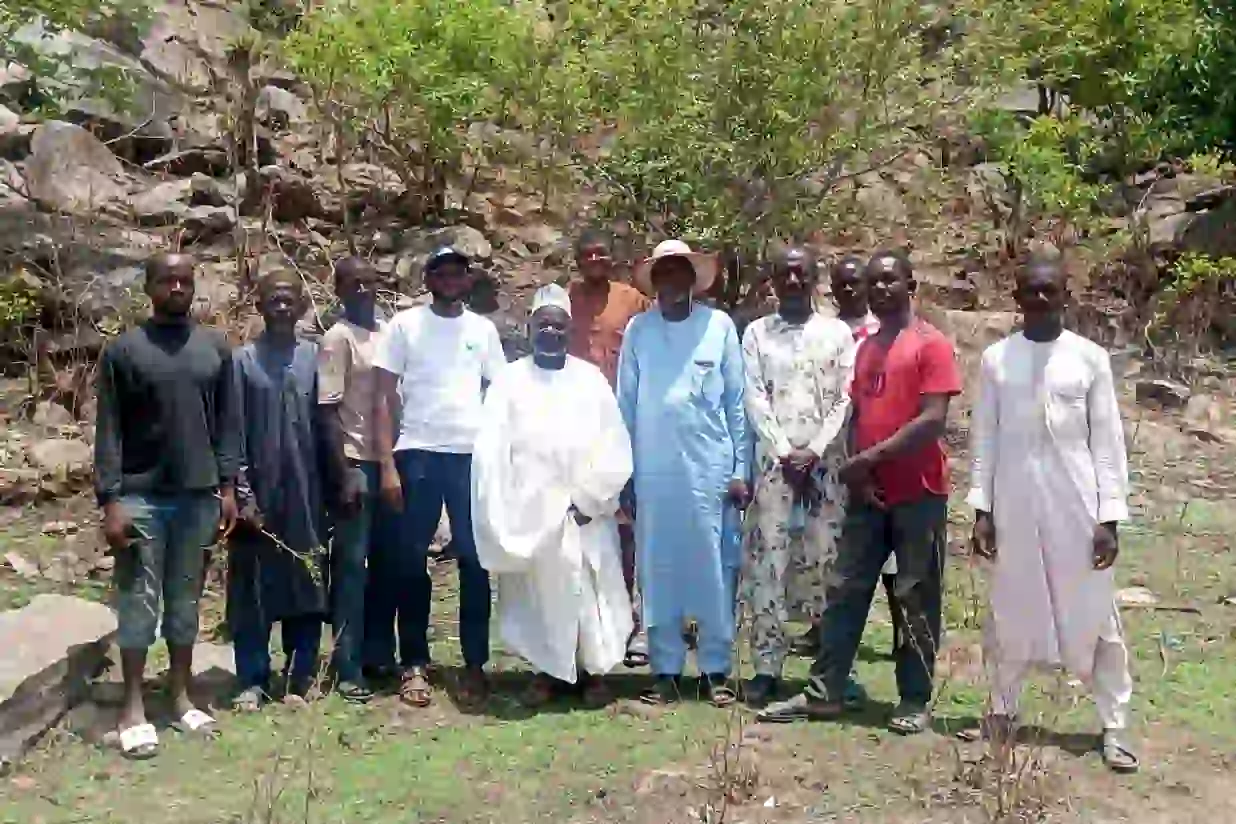Farmers in Bauchi State have commended the introduction of a smart agric education programme by the Savanna Institute for Sustainable Development (SISDev), describing it as a major step toward transforming agriculture in the state.
The programme, supported by the Soil Values Project funded by the International Fertiliser Development Corporation (IFDC), aims to strengthen climate-smart agriculture practices and enhance food security through sustainable farming methods.
SISDev is currently sensitising farmers and agricultural extension agents on smart agriculture through practical sessions focused on soil health, water conservation, and natural resource management. The initiative provides extension agents with essential tools such as soil testing kits and tablets to help them train farmers on modern and sustainable practices that improve productivity and protect the environment.
The organisation has launched a statewide sensitisation exercise, with 25 smallholder farmers benefiting in Ningi Local Government Area. The farmers were trained on soil restoration, conservation techniques, integrated soil fertility, and pest management practices designed to boost yields and promote sustainable agriculture.
According to SISDev, the programme seeks to improve soil fertility, restore degraded farmlands, and build farmers’ capacity across Bauchi State. The development follows similar interventions recently implemented in Kano and Jigawa States.
The SISDev-Soil Values programme is designed to address challenges faced by Sahelian countries, including recurrent droughts, socio-political conflicts, desertification, and the growing impacts of climate change. The project’s framework is built on three intervention pathways—Agroecology, Inclusive Markets, and Enabling Environment—supported by five operational areas: bundling, integration, brokering, convening, and scoping or learning.
Speaking during a farm demonstration exercise in Ningi on Wednesday, Mr. Isiaka Ibrahim, Project Team Lead at SISDev, said the programme had earlier trained 50 extension agents and lead farmers in Bauchi. He explained that these trained agents were expected to transfer their knowledge and skills to smallholder farmers across the 20 local government areas of the state.
“We are here in Ningi to supervise and monitor the EAs to lead farmers’ cascade training. We are here to see whether the EAs can impact what we have impacted on them in Bauchi,” Ibrahim said.
He added that the performance of both the extension agents and the trainees was satisfactory. “Both the EAs and the trainee’s performance is very satisfactory because the EAs are really trying, and this is a practical training, a farmer field school where the EA for Ningi trains them on our demonstration plot,” he said.
Ibrahim explained that the project’s main goal was to empower lead farmers with knowledge and hands-on skills necessary to support smallholder farmers in their communities. The field demonstration, he noted, was designed to promote peer-to-peer learning through practical engagement, equipping farmers with the knowledge to adopt innovative farming methods.
“The exercise availed participants opportunities to learn viable sustainable agricultural technologies, including soil restoration methods, water conservation techniques, and integrated pest management,” Ibrahim said.
He added that the farmers received training on integrated soil fertility management, the half-moon farming system, mulching, zai or compost pits, and the use of neem seed for pest control.
“Now that fertiliser is too expensive, smallholder farmers can use the composting system to create their own manure and sell it as a means of getting income. It is organic in nature, environmentally friendly, and helps to stem climate change,” he explained.
He further commended the partnership between SISDev and the Soil Values Project, noting that it had provided both technical and financial support. “The collaboration between SISDev and Soil Value is very excellent because we are appreciating both the technical and financial support,” he said.
Some of the beneficiaries expressed appreciation, describing the initiative as a life-changing opportunity for farmers in the area.
One of the participants, Mainuna Hassan, said the training had exposed her to practical methods of recycling farm residues into effective organic fertiliser. “I learnt how to recycle farm residues and transform it into an effective organic fertiliser. I have acquired practical skills to improve my farming activities and increase my output,” she said.
Another farmer, Mama Mairam, said the new techniques introduced through the programme had helped farmers reduce waste and improve yields. “SISDev–Soil Value has brought tremendous progress. Before the intervention, we were getting low yield but it has improved and achieved great results now. We’ve learned improved methods of local fertiliser application and how to retain soil moisture effectively so that our crops can thrive even with limited water,” she explained.
Mairam added that the intervention had brought remarkable transformation among women farmers in the area. “Women farmers are adopting new techniques which make farming less cumbersome and more profitable,” she said.
Another participant, Hashim Waziri, noted that the water conservation skills acquired during the training had helped farmers nurture their crops and reduce wastage. She explained that farmers were taught how to make holes in the ground to store excess water through mulching, especially during the dry season.
While commending the effort, Waziri promised to pass on the knowledge to other farmers in her community. “We will continue to teach others what we have learned so that more farmers can benefit from these sustainable agricultural practices,” she said.

